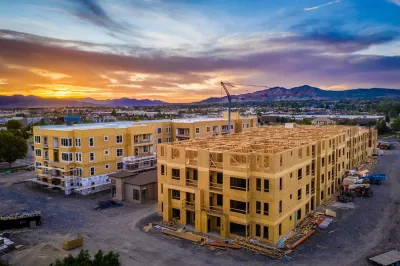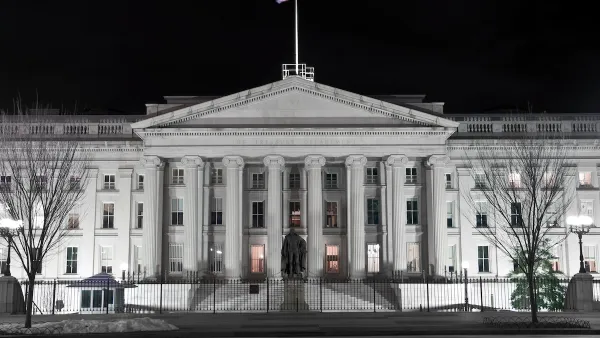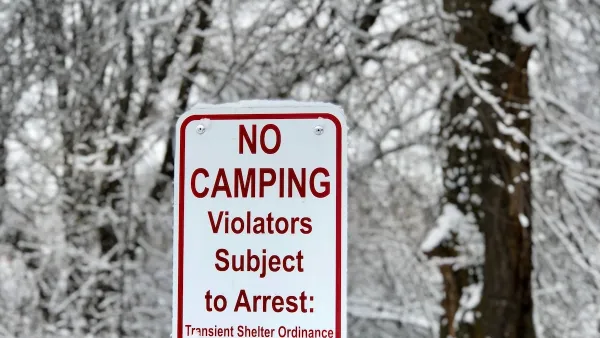How U.S. cities are seeking to diversify their funding sources for housing assistance programs and eliminate barriers to housing construction.

In an article for Smart Cities Dive, Kalena Thomhave outlines emerging trends in how cities approach reducing homelessness and alleviating the housing crisis, which continues to impact most American cities. “Just 34 affordable rentals are available for every 100 renters with extremely low income, according to the National Low Income Housing Coalition.”
As Thomhave notes, some cities are using their local power to reduce zoning restrictions on multifamily housing, enact tenant protection and rent stabilization laws, and outlaw discrimination against housing voucher recipients. “Alongside plans for the construction of permanent housing, cities are also building interim housing: safe, temporary housing for people experiencing homelessness.”
Cities are also looking for ways to reduce dependence on federal housing assistance programs. One such revenue source, the so-called “mansion tax” on transfers of high-value properties, was passed by over a dozen localities since 2018 and could become a significant source of new revenue for affordable housing programs.
Taking a different approach, some cities are taking more punitive measures against unhoused people after a Supreme Court ruling, Grants Pass v. Johnson, paved the way for the criminalization of homelessness.
FULL STORY: How cities could tackle homelessness in 2025

Analysis: Cybertruck Fatality Rate Far Exceeds That of Ford Pinto
The Tesla Cybertruck was recalled seven times last year.

National Parks Layoffs Will Cause Communities to Lose Billions
Thousands of essential park workers were laid off this week, just before the busy spring break season.

Retro-silient?: America’s First “Eco-burb,” The Woodlands Turns 50
A master-planned community north of Houston offers lessons on green infrastructure and resilient design, but falls short of its founder’s lofty affordability and walkability goals.

Test News Post 1
This is a summary

Analysis: Cybertruck Fatality Rate Far Exceeds That of Ford Pinto
The Tesla Cybertruck was recalled seven times last year.

Test News Headline 46
Test for the image on the front page.
Urban Design for Planners 1: Software Tools
This six-course series explores essential urban design concepts using open source software and equips planners with the tools they need to participate fully in the urban design process.
Planning for Universal Design
Learn the tools for implementing Universal Design in planning regulations.
EMC Planning Group, Inc.
Planetizen
Planetizen
Mpact (formerly Rail~Volution)
Great Falls Development Authority, Inc.
HUDs Office of Policy Development and Research
NYU Wagner Graduate School of Public Service




























